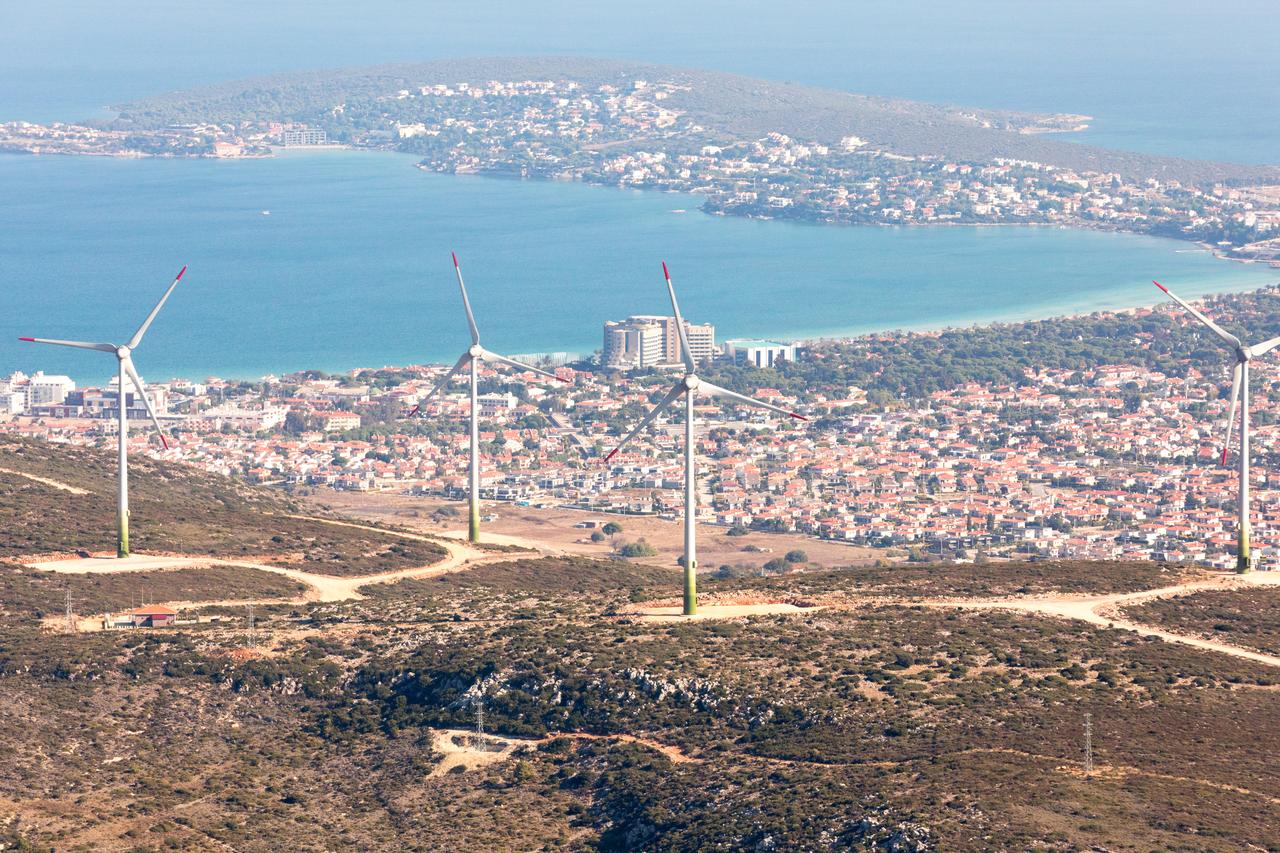
The Turkish government has submitted a sweeping legislative proposal to its parliament aimed at fast-tracking renewable energy and mining projects, which are expected to cost up to $80 billion. Backed by 115 lawmakers from the ruling Justice and Development Party (AK Party), the draft law seeks to streamline permitting processes, introduce investment guarantees, and reduce Türkiye’s dependency on imported energy and raw materials.
The legislation aligns with Türkiye’s 2022 National Energy Plan, which targets a 65% share of renewables in electricity generation by 2035, up from 45% currently.
To meet this goal, installed solar and wind capacity is planned to triple from the existing 36 gigawatts (GW) to 120 GW by 2035. This expansion is expected to reduce annual energy import costs by around $20 billion.
As of 2024, Türkiye’s total installed electricity capacity has reached 119.2 GW, with renewables accounting for 72.1 GW. Solar energy contributes 22.5 GW and wind 13.4 GW. The government estimates that the total number of power plants in the country now exceeds 36,000.

According to the business-focused dunya.com, the proposal introduces measures to cut down lengthy authorization procedures, which can take up to 48 months, to as little as 18 months.
It establishes a coordinated mechanism to accelerate environmental impact assessments, zoning approvals, and forestry permits. Environmental review processes are to be completed within a maximum of four months.
In a key change, measurement and drilling activities in project planning stages will no longer require a preliminary license.
Furthermore, zoning and land planning responsibilities for licensed renewable power plants may now be approved by the Energy Ministry, bypassing local authorities.
To boost investor confidence, the bill extends a crucial 85% discount on permits, land leases, and easement fees for renewable projects entering operation before Dec. 31, 2030.
For solar and wind installations on forest land, licensing procedures must be concluded within 60 days.
Additionally, licenses and associated rights will be automatically canceled if projects fail to progress beyond the pre-license stage by their deadline.

Türkiye’s mining legislation will also undergo significant reform. Under the new framework, minerals deemed vital for national security or industrial production will be designated as “strategic” or “critical.”
These include resources with high supply risks or essential to economic stability. In cases of inter-agency disagreement over permits, decisions will be made by a special committee chaired by the vice president.
The bill introduces a requirement for financial guarantees before mining exploration licenses are issued. If investment commitments are not fulfilled, the guarantees will be forfeited. Production licenses will only be extended if minimum output standards are met, and stricter environmental rehabilitation rules will apply.
For government-owned forest land, the General Directorate of Mining and Petroleum Affairs will be authorized to grant free-use permits for mining and infrastructure projects within three months, with the option of a one-year extension.
In 2024, Türkiye produced about 159.4 terawatt-hours (TWh) of electricity from renewable sources, avoiding nearly 32 billion cubic meters of gas imports, equivalent to $12 billion in savings.
Domestic coal plants also supplied 47.3 TWh, offsetting 9 billion cubic meters of gas and saving another $3.5 billion.
Despite holding significant reserves in nearly 60 mineral types, Türkiye’s mining-related foreign trade deficit has risen to approximately $60 billion.
However, exports totaled $6.3 billion in 2024, and the government expects this to exceed $10 billion by 2026. With the proposed law, the mining sector’s share of gross domestic product is projected to rise from 1.2% to over 2% by 2028.
In 2025 alone, the government plans to invest ₺260 billion ($6.6 billion) in the energy sector, including ₺140.7 billion for natural gas and oil exploration and ₺42 billion for electricity transmission infrastructure.
Türkiye’s electricity demand, which stood at approximately 349 TWh in 2024, is projected to grow to 510 TWh by 2035—more than double its 2010 level.
The proposed law is seen as essential to securing long-term supply through domestic resources while curbing the country’s current account deficit.